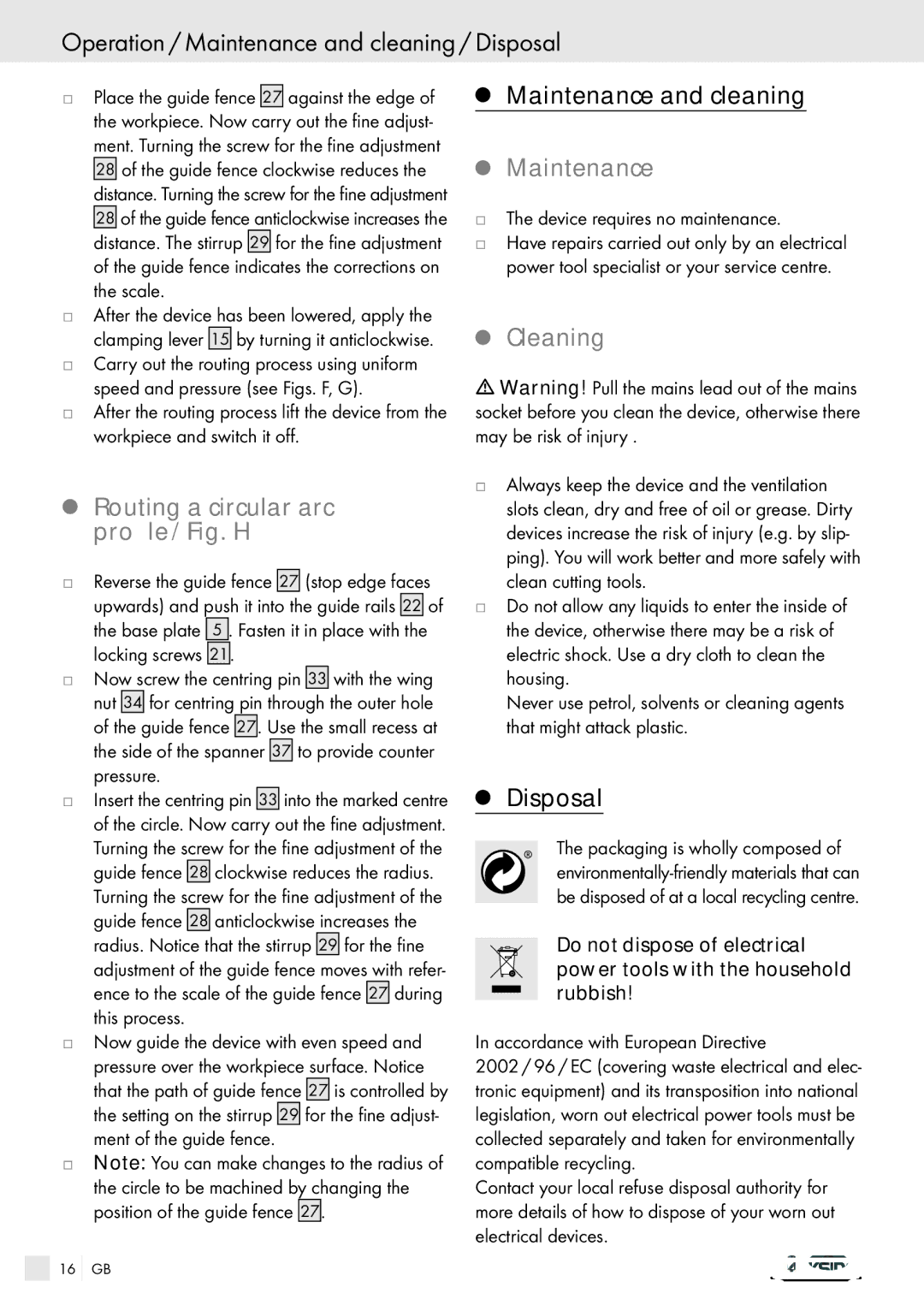
Operation / Maintenance and cleaning / Disposal
jPlace the guide fence 27 against the edge of the workpiece. Now carry out the fine adjust- ment. Turning the screw for the fine adjustment 28 of the guide fence clockwise reduces the distance. Turning the screw for the fine adjustment 28 of the guide fence anticlockwise increases the distance. The stirrup 29 for the fine adjustment of the guide fence indicates the corrections on the scale.
jAfter the device has been lowered, apply the clamping lever 15 by turning it anticlockwise.
jCarry out the routing process using uniform speed and pressure (see Figs. F, G).
jAfter the routing process lift the device from the workpiece and switch it off.
QRouting a circular arc profile / Fig. H
jReverse the guide fence 27 (stop edge faces upwards) and push it into the guide rails 22 of the base plate 5 . Fasten it in place with the locking screws 21.
jNow screw the centring pin 33 with the wing nut 34 for centring pin through the outer hole of the guide fence 27. Use the small recess at the side of the spanner 37 to provide counter pressure.
jInsert the centring pin 33 into the marked centre of the circle. Now carry out the fine adjustment. Turning the screw for the fine adjustment of the guide fence 28 clockwise reduces the radius.
Turning the screw for the fine adjustment of the guide fence 28 anticlockwise increases the radius. Notice that the stirrup 29 for the fine adjustment of the guide fence moves with refer- ence to the scale of the guide fence 27 during this process.
jNow guide the device with even speed and pressure over the workpiece surface. Notice that the path of guide fence 27 is controlled by the setting on the stirrup 29 for the fine adjust- ment of the guide fence.
jNote: You can make changes to the radius of the circle to be machined by changing the position of the guide fence 27.
16 GB
QMaintenance and cleaning
QMaintenance
jThe device requires no maintenance.
jHave repairs carried out only by an electrical power tool specialist or your service centre.
QCleaning
mWarning! Pull the mains lead out of the mains socket before you clean the device, otherwise there may be risk of injury .
jAlways keep the device and the ventilation slots clean, dry and free of oil or grease. Dirty devices increase the risk of injury (e.g. by slip- ping). You will work better and more safely with clean cutting tools.
jDo not allow any liquids to enter the inside of the device, otherwise there may be a risk of electric shock. Use a dry cloth to clean the housing.
Never use petrol, solvents or cleaning agents that might attack plastic.
QDisposal
The packaging is wholly composed of
Do not dispose of electrical power tools with the household rubbish!
In accordance with European Directive 2002 / 96 / EC (covering waste electrical and elec- tronic equipment) and its transposition into national legislation, worn out electrical power tools must be collected separately and taken for environmentally compatible recycling.
Contact your local refuse disposal authority for more details of how to dispose of your worn out electrical devices.
